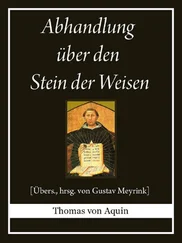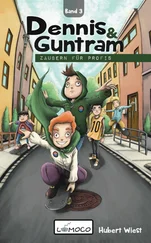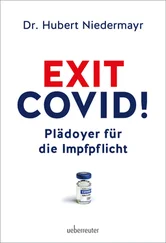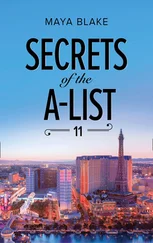Hubert Aquin - Next Episode
Здесь есть возможность читать онлайн «Hubert Aquin - Next Episode» весь текст электронной книги совершенно бесплатно (целиком полную версию без сокращений). В некоторых случаях можно слушать аудио, скачать через торрент в формате fb2 и присутствует краткое содержание. Год выпуска: 2001, ISBN: 2001, Издательство: McClelland & Stewart, Жанр: Современная проза, на английском языке. Описание произведения, (предисловие) а так же отзывы посетителей доступны на портале библиотеки ЛибКат.
- Название:Next Episode
- Автор:
- Издательство:McClelland & Stewart
- Жанр:
- Год:2001
- ISBN:9781551996240
- Рейтинг книги:3 / 5. Голосов: 1
-
Избранное:Добавить в избранное
- Отзывы:
-
Ваша оценка:
- 60
- 1
- 2
- 3
- 4
- 5
Next Episode: краткое содержание, описание и аннотация
Предлагаем к чтению аннотацию, описание, краткое содержание или предисловие (зависит от того, что написал сам автор книги «Next Episode»). Если вы не нашли необходимую информацию о книге — напишите в комментариях, мы постараемся отыскать её.
is a disturbing and yet deeply moving novel of dissent and distress. As he awaits trial, a young separatist writes an espionage story in the psychiatric ward of the Montreal prison where he has been detained. Sheila Fischman’s bold new translation captures the pulsating life of Aquin’s complex exploration of the political realities of contemporary Quebec.
Next Episode — читать онлайн бесплатно полную книгу (весь текст) целиком
Ниже представлен текст книги, разбитый по страницам. Система сохранения места последней прочитанной страницы, позволяет с удобством читать онлайн бесплатно книгу «Next Episode», без необходимости каждый раз заново искать на чём Вы остановились. Поставьте закладку, и сможете в любой момент перейти на страницу, на которой закончили чтение.
Интервал:
Закладка:
Hubert Aquin
Next Episode
The Author
HUBERT AQUIN was born in Montreal, Quebec, in 1929. After receiving his licentiate in philosophy from the University of Montreal, he spent three years at the Institute of Political Studies in Paris, then returned to the University of Montreal, where he studied for one year at the Institute of History.
Aquin worked as a radio and television producer with the Canadian Broadcasting Corporation’s Public Affairs division in Montreal and won many awards for his work as a director with the National Film Board.
One of Quebec’s prominent essayists, he turned to fiction in the 1960s. Next Episode (1965), Aquin’s first novel, is the searing first-person account of terrorism about to be perpetrated by the novel’s young narrator.
Hubert Aquin died in Montreal, Quebec, in 1977.
So you’re in the Alps! Are they not beautiful? There is nothing else in the world.
— Alfred de Musset[1] Correspondence of G. Sand and Alfred de Musset (Brussels: E. Deman, 1904), p. 40.
1
CUBA IS SINKING in flames in the middle of Lac Léman while I descend to the bottom of things. Packed inside my sentences, I glide, a ghost, into the river’s neurotic waters, discovering as I drift the underside of surfaces and the inverted image of the Alps. Between the anniversary of the Cuban revolution and the date of my trial, I have time enough to ramble on in peace, to open my unpublished book with great care, and to cover this paper with the key-words that won’t set me free. I’m writing on a card table next to a window looking out on grounds enclosed by a sharp iron fence that marks the boundary between what’s unpredictable and what is locked up. I won’t get out before the day of reckoning. That’s written in several carbon copies as decreed, following valid laws and an unassailable royal judge. There are no distractions then, nothing to replace the clockwork of my obsession or make me deviate from the written record of my journey. Basically, only one thing really concerns me and it’s this: how should I set about writing a spy novel? My wish is complicated by the fact that I long to do something original in a genre that has so many unwritten rules and laws. Fortunately, though, a certain laziness leads me to give up any idea about breathing new life into the tradition before I even get started. I may as well admit it — making myself comfortable in a literary form that’s already so well defined makes me feel very secure. And so without hesitation I decide to integrate my work within the main lines of the traditional spy novel. And since I want to set it in Lausanne, that’s taken care of. As quickly as I can, I eliminate any behaviour that would give my secret agent too much merit: he’s neither a Sphinx nor a highly perceptive Tarzan, neither God nor the Holy Ghost; he mustn’t be so logical that the plot need not be or, on the other hand, so lucid that I can complicate everything else and cook up some story that makes no sense, that when all’s said and done would only be understood by some bungling oaf with a gun who doesn’t share his thoughts with anyone. And if I were to introduce a Wolof Secret Agent … Everybody knows that Wolofs aren’t legion in French-speaking Switzerland and that they’re under-represented in the secret service. I know, I’m overdoing it, falling into the trap of the Afro-Asian bloc, giving in to the African and Madagascar Union lobby. But let me tell you something: if Hamidou Diop suits me, I can simply make him a secret agent in Lausanne on a counter-espionage mission, for no other reason than to get him out of Geneva where the air is less salubrious. Now I can reserve a suite at the Lausanne Palace for Hamidou, provide him with traveller’s cheques from the Banque Cantonale Vaudoise, and appoint him a Special Envoy (a phony one) from the Republic of Senegal to some big Swiss companies that want to invest in desert real estate. Once Hamidou is protected by his fake identity and settled in at the Lausanne Palace, I can bring CIA and MI5 agents into the picture. And that’s that. In return for adding a few alluring lady spies and the algebraic treatment of the plot, I have my deal. Hamidou is getting impatient, I sense that he’s about to do something crazy: in fact, I suspect it’s already begun. My future novel is already in orbit, so far out that I can’t bring it back. I’m frozen, I’ve just been dumped here inside my alphabet, I’m shackled to it and asking myself some questions. To write the kind of spy novel we read would be dishonest: in fact, it would be impossible. Writing a story is no small matter, unless it becomes the daily and detailed punctuation of my endless stillness and my slow fall into this liquid pit. The enemy will be lying in wait for me unless I can make life absolutely impossible for my character. To populate my own empty space I intend to pile up corpses along my character’s way, multiply attempts on his life, drive him crazy with anonymous calls and knives planted in his bedroom door; I’ll kill everyone he’s spoken to, even the courteous hotel cashier. I’ll put Hamidou through the mill or I won’t have the courage to live. I’ll plant bombs in his entourage and to complicate matters conclusively I’ll set the Chinese onto him, a number of them and all the same: there will be Chinese on the streets of Lausanne, hordes of smiling Chinese who’ll look Hamidou in the eye. Taking a Stelazine distracted me briefly from poor Hamidou’s career. Fifteen minutes from now they’ll bring me a cold meal, and other interruptions will go on till bedtime, as I draw up the outline of a novel without continuity, lay down the unknowns of a fictitious equation, and in the end imagine some total nonsense for as long as this disorganized siege gives me a bulwark against sadness and the criminal waves that crash into me, roaring and chanting the name of the woman I love.
Late one winter afternoon we drove through the countryside around Acton Vale. Patches of snow on the hillsides reminded us of the dazzling snow that had enfolded our first embrace in the nondescript apartment on Côte-des-Neiges. On that lonely road which goes from Saint-Liboire to Upton and then to Acton Vale, from Acton Vale to Durham-sud, from Durham-sud to Melbourne, Richmond, Danville, Chénier, formerly known as Tingwick, we talked to each other, my love. For the first time we mingled our two lives in a river of inspiration that still flows in me this afternoon between the shattered shores of Lac Léman. It’s in the area of this invisible lake that I’ll set my story, it’s into the very waters of the extended Rhône that I plunge, tirelessly seeking my own cadaver. The quiet road from Acton Vale to Durham-sud is the end of the world. Thrown off track, I descend into myself but I can’t find my way. Imprisoned in a clinical submarine, I’m engulfed by a deathly uncertainty. The only thing that’s certain now is your secret name, your warm, wet mouth, your amazing body I reinvent again and again with less precision and more passion. I count the days I have to live without you and my chances of finding you again after I’ve wasted all that time: how can I avoid doubt? How can I avoid choosing suicide over this atrocious erosion? Everything from the past is crumbling. I lose all notion of the time of passion, I even lose any awareness of my slow escape, for I have no point of reference to help me measure my speed. Nothing is hardening outside my window: characters and memories are liquefied in the pointless splendour of the alpine lake where I try to find my words. I’ve already spent twenty-two days away from your resplendent body. I have sixty more days of underwater residence before I resume our interrupted embrace or set out again on the road to prison.
Читать дальшеИнтервал:
Закладка:
Похожие книги на «Next Episode»
Представляем Вашему вниманию похожие книги на «Next Episode» списком для выбора. Мы отобрали схожую по названию и смыслу литературу в надежде предоставить читателям больше вариантов отыскать новые, интересные, ещё непрочитанные произведения.
Обсуждение, отзывы о книге «Next Episode» и просто собственные мнения читателей. Оставьте ваши комментарии, напишите, что Вы думаете о произведении, его смысле или главных героях. Укажите что конкретно понравилось, а что нет, и почему Вы так считаете.












